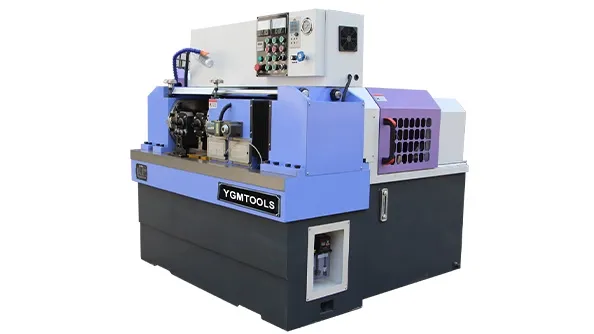
-
 Afrikaans
Afrikaans -
 Albanian
Albanian -
 Amharic
Amharic -
 Arabic
Arabic -
 Armenian
Armenian -
 Azerbaijani
Azerbaijani -
 Basque
Basque -
 Belarusian
Belarusian -
 Bengali
Bengali -
 Bosnian
Bosnian -
 Bulgarian
Bulgarian -
 Catalan
Catalan -
 Cebuano
Cebuano -
 Corsican
Corsican -
 Croatian
Croatian -
 Czech
Czech -
 Danish
Danish -
 Dutch
Dutch -
 English
English -
 Esperanto
Esperanto -
 Estonian
Estonian -
 Finnish
Finnish -
 French
French -
 Frisian
Frisian -
 Galician
Galician -
 Georgian
Georgian -
 German
German -
 Greek
Greek -
 Gujarati
Gujarati -
 Haitian Creole
Haitian Creole -
 hausa
hausa -
 hawaiian
hawaiian -
 Hebrew
Hebrew -
 Hindi
Hindi -
 Miao
Miao -
 Hungarian
Hungarian -
 Icelandic
Icelandic -
 igbo
igbo -
 Indonesian
Indonesian -
 irish
irish -
 Italian
Italian -
 Japanese
Japanese -
 Javanese
Javanese -
 Kannada
Kannada -
 kazakh
kazakh -
 Khmer
Khmer -
 Rwandese
Rwandese -
 Korean
Korean -
 Kurdish
Kurdish -
 Kyrgyz
Kyrgyz -
 Lao
Lao -
 Latin
Latin -
 Latvian
Latvian -
 Lithuanian
Lithuanian -
 Luxembourgish
Luxembourgish -
 Macedonian
Macedonian -
 Malgashi
Malgashi -
 Malay
Malay -
 Malayalam
Malayalam -
 Maltese
Maltese -
 Maori
Maori -
 Marathi
Marathi -
 Mongolian
Mongolian -
 Myanmar
Myanmar -
 Nepali
Nepali -
 Norwegian
Norwegian -
 Norwegian
Norwegian -
 Occitan
Occitan -
 Pashto
Pashto -
 Persian
Persian -
 Polish
Polish -
 Portuguese
Portuguese -
 Punjabi
Punjabi -
 Romanian
Romanian -
 Russian
Russian -
 Samoan
Samoan -
 Scottish Gaelic
Scottish Gaelic -
 Serbian
Serbian -
 Sesotho
Sesotho -
 Shona
Shona -
 Sindhi
Sindhi -
 Sinhala
Sinhala -
 Slovak
Slovak -
 Slovenian
Slovenian -
 Somali
Somali -
 Spanish
Spanish -
 Sundanese
Sundanese -
 Swahili
Swahili -
 Swedish
Swedish -
 Tagalog
Tagalog -
 Tajik
Tajik -
 Tamil
Tamil -
 Tatar
Tatar -
 Telugu
Telugu -
 Thai
Thai -
 Turkish
Turkish -
 Turkmen
Turkmen -
 Ukrainian
Ukrainian -
 Urdu
Urdu -
 Uighur
Uighur -
 Uzbek
Uzbek -
 Vietnamese
Vietnamese -
 Welsh
Welsh -
 Bantu
Bantu -
 Yiddish
Yiddish -
 Yoruba
Yoruba -
 Zulu
Zulu
Enhanced Performance and Durability in Precision Thread Rolling Tools for Superior Manufacturing Results
High-Quality Thread Rolling Tools The Key to Precision and Efficiency in Manufacturing
In the realm of manufacturing, the importance of precision and durability cannot be overstated. This is particularly true in the production of threaded components, where the quality of the threading can significantly affect the performance and longevity of the final product. High-quality thread rolling tools have emerged as essential assets in this context, delivering enhanced accuracy, efficiency, and overall quality in manufacturing processes.
High-Quality Thread Rolling Tools The Key to Precision and Efficiency in Manufacturing
One of the foremost advantages of high-quality thread rolling tools is their ability to produce precise threads. Precision in manufacturing is vital, particularly in industries such as automotive, aerospace, and electronics, where even the slightest deviation can lead to catastrophic failures. High-quality tools are designed with superior materials and advanced manufacturing techniques that ensure consistent performance over time. This precision allows manufacturers to meet stringent specifications and maintain high tolerances, resulting in components that fit perfectly within their assemblies.
high quality thread rolling tool

Furthermore, the surface finish produced by high-quality thread rolling tools is markedly superior to that achieved through traditional cutting methods. The rolling process tends to create smoother surfaces with fewer defects, such as burrs or sharp edges. This not only enhances the aesthetic quality of the components but also improves their functional characteristics. A smoother surface can reduce friction, leading to better performance in applications where threaded parts engage with other components.
In addition to precision and surface finish, high-quality thread rolling tools increase operational efficiency. These tools can be used to produce a high volume of parts with minimal downtime, making them ideal for mass production environments. The cold-forming nature of the process means that less energy is consumed, and the tools themselves experience less wear and tear, resulting in longer tool life. This longevity translates to reduced production costs and fewer interruptions for maintenance and tool changes, allowing manufacturers to maximize uptime and output.
Moreover, investing in high-quality thread rolling tools can lead to significant cost savings in the long run. Although the initial investment may be higher than that of lower-quality options, the benefits of higher durability, reduced scrap rates, and improved production efficiency can outweigh these costs. Manufacturers can achieve better profitability by minimizing waste and ensuring that each tool continues to perform at peak efficiency throughout its lifespan.
In conclusion, high-quality thread rolling tools are indispensable in the manufacturing landscape. Their ability to provide precise threads, superior surface finishes, and remarkable efficiency makes them a preferred choice for manufacturers looking to enhance their production processes. As industries continue to evolve and demand for higher-quality components rises, the role of advanced thread rolling tools will undoubtedly become even more significant. By investing in such tools, manufacturers not only improve their product quality but also position themselves competitively in a global market that increasingly values precision and efficiency.
